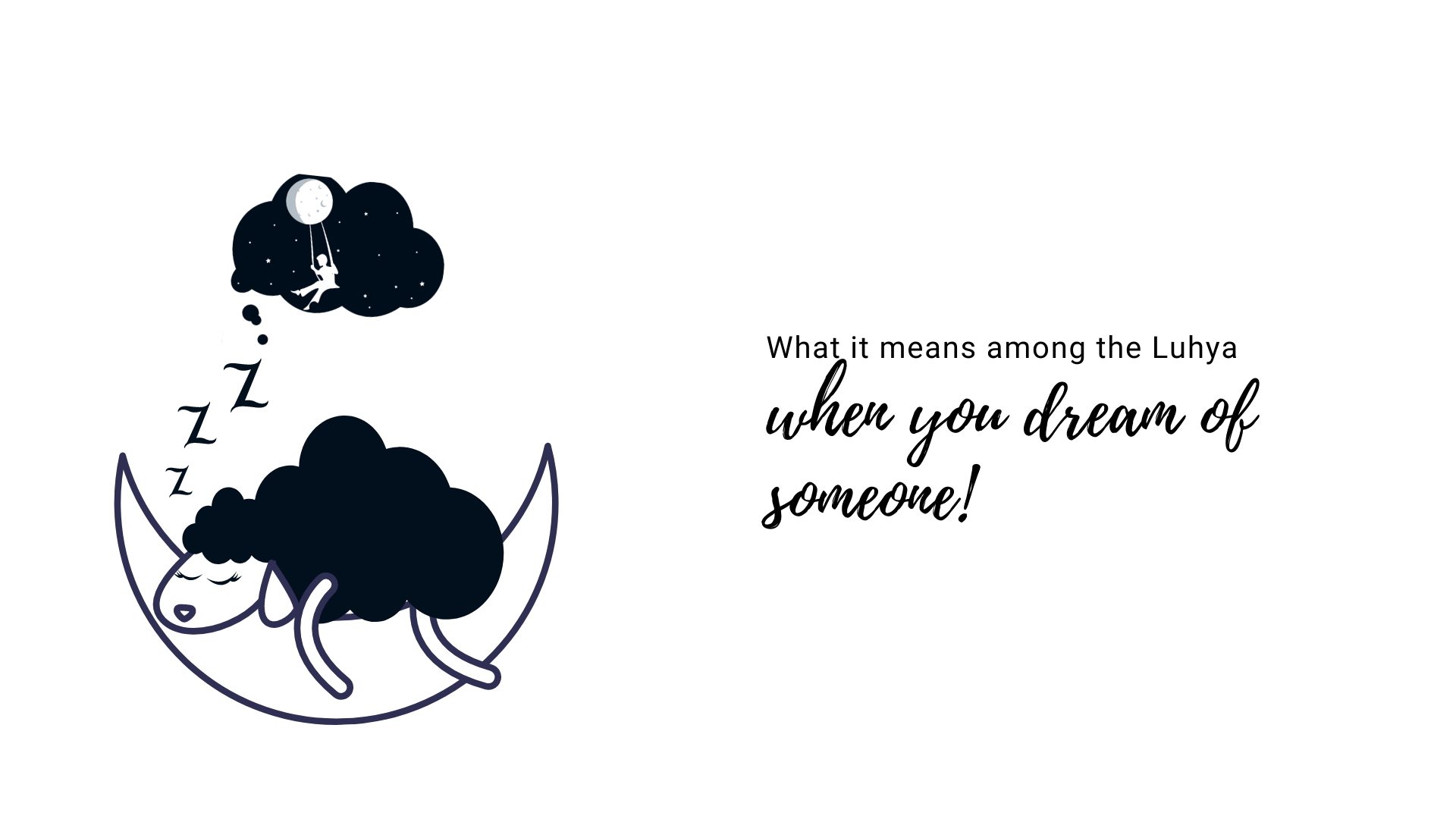The Luhya of Western Kenya had a body of knowledge which they relied on to make sense of dreams. Join us as we rediscover an old art lost in translation and retell forgotten traditions, as we reveal what it means among the Luhya when you dream of someone.
Subscribe to Mulembe Weekly
Get culture, language, stories and discussions in your inbox every Friday 5 PM East Africa Time
Some neuroscience experts estimate that we dream at least four to six times a night. However, for most of us we hardly can remember our dreams when we wake up. And if we do remember, what follows is agonizing over what those dreams mean. Especially so when we dream of someone we know.
I don’t know about you, but my partner and I have made a habit of being each others dream interpreter. I try make sense of her dreams and she does the same for me. As dream interpretation is not an exact science, often these conversations with my wife are nothing but a simulating exploration of our thoughts and beliefs on all things about life.
And it only gets interesting when (as you may have experienced yourself) sometimes, hours or even days later, it does happen that an unexpected (coincidental?) thing happens and we can trace links between the happening and a dream either of us had! It’s not that my wife and I are overly superstitious interpreting dreams is something humanity has done for as long as whenever.
Therefore to keep this human tradition along, we look at what it means among the Luhya when you dream of someone. First up the most rare of dreams you can have about someone, and an old forgotten tradition. Note that this article is focused on dreams that occur during sleep. For other dreams, visualizations or sightings please refer to our fascinating article: Kamaroro Ke Babukusu – Dreams of the Bukusu.
Luhya traditions when you dream of lightening striking a loved one
Among the Luhya, one of the cultural uses of the libono (livono), castor oil tree, is its presumed role as a lightening arrestor. The Maragoli sub tribe believes that it is always wise to have a libono tree in one’s compound for this purpose. Today, however, we go further: the mulembe house of Babukusu takes this cultural claim further into the world of dreams.
The descendants of Mwambu and Sela have an elaborate traditional rite that has to be performed whenever one dreams of someone being struck by lightening.
When you dream of someone being struck by lightening, first thing in the morning is to inform the person who you dreamt of about your dream. Specifically, given the ominous nature of delivering such a message on relies on the Bukusu saying: “Oli ndorire likulu nelikhulia!”

Translation: I saw the heavens eat you up
Want more Luhya to English translations? See our free dictionary and thesaurus ↗
Once informed of this grave message, the person struck by lightening in the dream is required by tradition to protect themselves and their loved ones from the bad omen. To achieve this, they slaughter a black ram. This slaughtered animal is used to perform a cleansing ritual that in Lubukusu is described as follows
Keakhe mubuse mala wikane busiku.
Meaning, they concerned party is to ‘wash’ their hands in the digested food matter in the ram’s stomach.
As they wash their hands, under the guidance of a clan elder, they denounce the bad omens. I imagine them saying riswa! Riswa! over and again in response to the elder’s chants. Thereafter, just like while partaking silukhi, the person undergoing this cleansing ceremony feasts on the meat of the ram. As a seal, the meal is shared with family and any other witnesses present.
What it means among the Luhya when you dream of a dead person
Often it is taken to mean that the person in the world of the living dead is unhappy about something in the living world. Either the said thing has happened, is happening or about to happen. Could be that those whomever the dead person appearing in dreams left behind are disrespecting their legacy. Or if it was an unusual death, their murderers are not only walking scot free but mixing freely with their loved ones.
Really, it could be anything. That said, the importance of dreaming about a dead person depends quite a number of things. First, we consider who had the dream; the timing of the message being relayed, and context among other things. It usually requires the input of elders to decide whether such dreams are to be taken seriously or dismissed as attention seeking or deliberate attempts at blackmail and manipulation of the living.
Related

The meaning of 10 common dreams: An introduction to Luhya interpretation of dreams – the good, bad, embarrassing, naughty, hilarious all revealed
Luhyas don’t just dream. We see in our sleep. In fact, in most Luhya dialects, the Luhya word for dream will stem from words that mean ‘to see’. For instance, among our Bukusu brothers the word for dreams is kamaroro, meaning visions or sightings. This is because in Luhya culture, dreams are a medium by which the world of ancestors communicates with the living. Further, in keeping with mysticism associated with dreams, among the people of mulembe, dreams have horoscopic value as well. Therefore, when we try to find meaning in the strange happenings of the world of dreams, we do so in the hope that we will be able to understand and explain life as it happens. As such, a common theme in Luhya interpretation of dreams is actively seeking for clues of what is going to befall or is currently ongoing in a family or clan.
What it means when you ‘generally’ dream of someone
In modern times, we often think of dreaming of someone as a way of our minds processing our relationship with that person. Dreams of people have been said to be and indication of what those people mean to us. It tells of their importance in our lives, or how they make us feel; and sometimes even things about them that we admire.
For example, when you dream of an ex, it could mean that they still occupy your thoughts. Could be that you subconsciously long for them, something happened that reminded of of them, or you are simply yet to get over the pain. In other circumstances, we dream of people who we have missed and it happens that we sooner or later come come into contact with them! One of life’s mysteries. All in all, today, we generally think of dreaming of someone as a good thing or in affectionate terms.
It was no different among the Luhya. What is different though is how one would express that affection – by canning the person who they dreamt of! Did I ever tell you the story between my father and sister?
Well, read on to get to know why you must cane that person when you dream of them.

